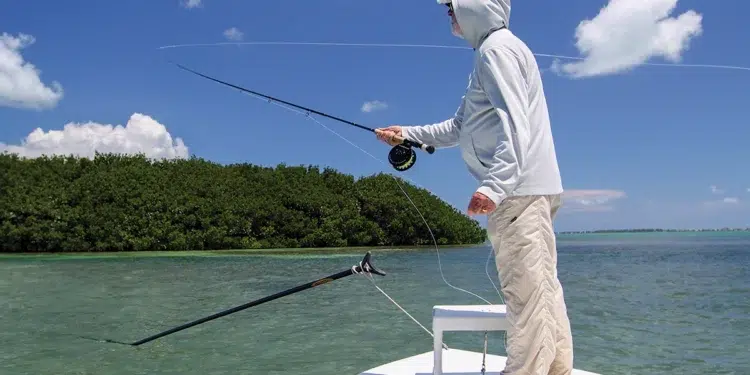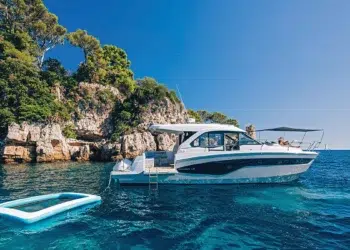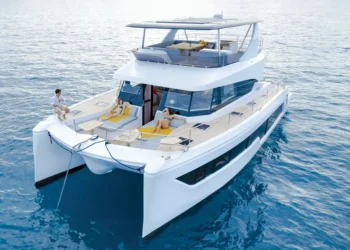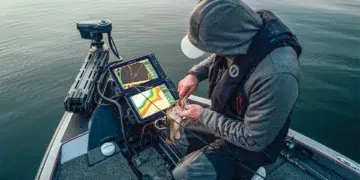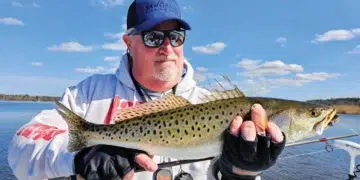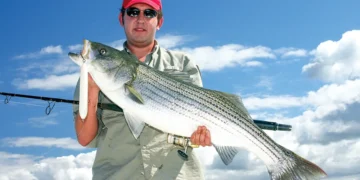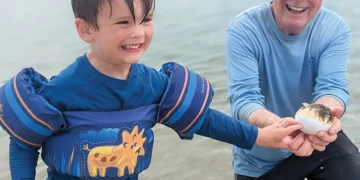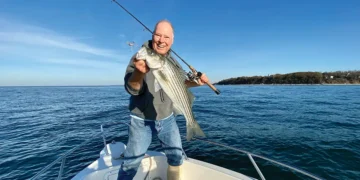Tips for how to successfully make a catch on a hot summer day
When it was announced that the sea surface water temperature at Manatee Bay in Key Largo, Florida, hit a high of 101.1 degrees Fahrenheit on July 24, 2023, it left a lot of people shaking their heads in disbelief. No doubt, sea temperatures have been rising for decades, but to break the 100-degree Fahrenheit barrier was startling and concerning on so many fronts, from the potential for major coral bleaching events to effects on aquatic wildlife and more.
Also Read
Miami International Boat Show Preview: Unveiling the Latest 2026 Models
Originally published: Feb. 11, 2025Updated: Feb. 3, 2026 Unwrap the latest models from the 2026 Miami International Boat Show. Celebrate...
“Surprisingly, though, the fish were still biting!” says Capt. Rob Modys, an outdoors lifestyle writer, author, and retired fishing guide living the dream in Key Largo, Florida. “That reading came from very shallow waterway in the back of the bay, and it was scary-hot, but much of the bay only got up to ninety-two to ninety-three degrees. That’s still very warm, but it certainly didn’t stop the fishing. Believe it or not, catches actually trend better here in the summer than during the winter.”
That news should bring a little relief to anglers all along the East and Gulf Coasts as they gear up and head out in pursuit of their favorite species this August, a month known for extreme heat and mugginess from Maine to Texas. After all, if fish can be caught in the shallows of the Everglades and Florida Bay during the height of summer, it seems reasonable to assume it’s possible to tempt a few just about anywhere one can wet a line.
Subscribe Here For Weekly Updates
There are several ways to increase your odds of connecting even when the summer is at its hottest. For starters, boating anglers can push out into nearshore ocean waters and enjoy wreck fishing for bottom feeders where extra depth ensures bait will be in cooler water. Heading farther offshore also opens the path to tangle with pelagics like mahi tuna, king mackerel, and marlin, all of which seem to favor warmer water.
Playing the tides is another smart move, especially when fishing bay waters that heat up quickly. Rising tides draw from the ocean or deeper sounds and may be several degrees cooler than shallow inside stretches that have been baking under a bright sun. That refreshing flood often triggers the best action of the day.
Of course, since fish metabolisms slow down during the heat of summer, it’s a good idea to also scale down the profile and length of the lures you throw. While the old adage “big baits catch big fish” may apply more often than not, a slower retrieve and smaller target is likely to interest sluggish combatants that are reluctant to play.
Also Read:
25 New Power Catamarans You’ll Want to Cruise in 2025
Catamarans are stable, roomy, and love to purr. If it seems like there are a lot of new...
All those tricks help, notes Modys, who has just released a new book called What I Know About Fishing the Florida Keys (catchyououtdoors.com for a signed edition or amazon.com). “Even more important, however, is ensuring you dress for success,” he says. “It’s vital to wear shades for UV eye protection, sun protective clothing, and to apply and reapply sunblock throughout the day.” Consider also switching out that simple baseball cap for a big straw farmer’s hat to shield not only your head, but your neck and shoulders as well. “You might also wear a cooling neck gaiter, the kind that really feels good when it gets wet. Buff and Simms both make these,” he adds.
Carrying along plenty of water is also vital. “I tell people to bring three days’ worth on any trip if they plan to fish the Florida Everglades or backcountry because you never know how long it might take to get home if you have engine trouble,” continues the Florida native. “You might need a little bit less up north, but H2O is never an item on which to skimp.”
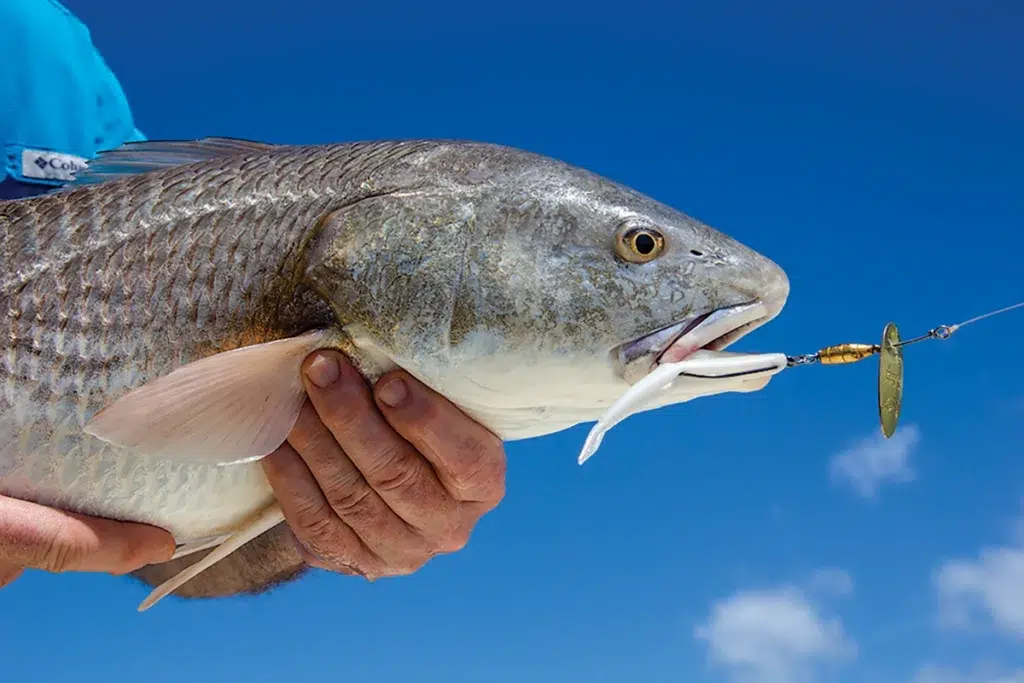
As for eating, keeping things light and salty is probably best when dealing with heat waves. Modys brings salty pretzels or pretzel sticks. “It’s important to replenish the salt you sweat out during the day,” he advises. “If it’s hot out, I don’t eat anything heavy on my boat—no big sandwiches or subs. Instead, I bring fresh, water-rich fruit like pre-cut watermelon or cantaloupe. Enjoy a couple bites and you’ll instantly feel refreshed—and that can help you capitalize on the next surprise strike.”
-by Tom Schlichter


